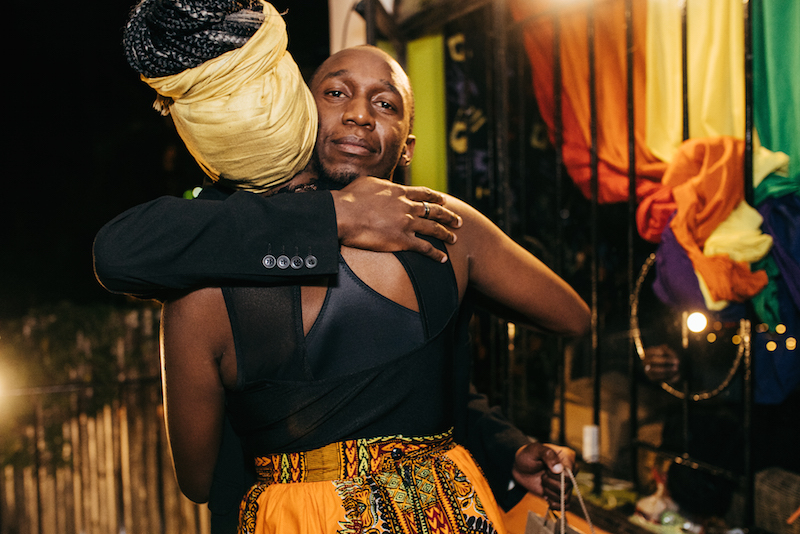NGLHRC recognizes that stigma, discrimination, harassment and violence towards the LGBTIQ community comes mostly from ordinary citizens. The most common forms of such abuses are; blackmail, torture, verbal harassment, threats, physical abuse and sexual violence. We recognize that this prejudice towards the community is caused largely by:

Advocacy And Engagement
- Invisibility of the LGBTIQ community
- General ignorance and stereotyping of LGBTIQ individuals, and
- incitement from politicians and religious leaders that label sexual and gender minorities as outsiders or “un-African”
Through advocacy and public engagement, we are changing the prevailing attitudes on diversity. Because without a change in society’s attitudes towards the community, there can be no public space for the enjoyment of the rights we seek to protect.
One of the first steps towards social change, requires occupying public media spaces to bust myths and stereotypes on LGBTIQ identity and persons. NGLHRC works to replace these myths with factual information that is beyond reproach.
Since we announced our organisation at our inaugural annual Gay and Lesbian Awards (GALA) dinner held at Nairobi’s City Hall, NGLHRC has been intentional about occupying public space. Our advocacy and engagement efforts include:
- Participation in topical issues of governance with other Civil Society Organisations
- Media campaigns
- Holding our annual public Upinde Gay and Lesbian Awards dinner to honour those fighting against homophobia, biphobia and transphobia in Kenya
- Engaging in civic protests and other political actions in solidarity with allies across the social justice movement
- University debates and lectures on equality
- Trainings on LGBTIQ sensitivity targeted to the protection and resettlement caseworkers as well as their implementing partners
- Training of police and health workers
- Quarterly stakeholder meetings around sexual orientation and gender identity issues in Kenya
- Lobbying Members of Parliament on equality
- Magistrates and judges’ training
International Advocacy
Recognizing that domestic efforts require international mechanisms to buttress our gains which is why we continue to do so.
- To prevent rollback of gains.
- To situate our advocacy within a larger Human Rights discourse
- To lean on international Human Right procedures as a guiding light and a way to foster accountability to the international treaties and conventions
NGLHRC continues to be keen on submitting shadow reports to different committees of the United Nations, depending on the treaty for which Kenya is being reviewed. In 2014 and 2019, NGLHRC, in a consortium of other like-minded Civil Society Organizations, submitted to the Universal Periodic Review (UPR). From 2014, we have been on then forefront in provision of shadow statements to international UN mechanisms to shed light to issues involving the queer citizenry in Kenya. In 2015, Sweden among other missions, recommended to Kenya to enact anti-discriminatory laws that protect sexual and gender diverse minorities, and Kenya accepted the suggestion. Engagement with international spaces and missions ensures that the constituents we serve are advocated for in different levels of interactions with the government that may not be available locally. Kenya has been reviewed by the UPR in three cycles. In 2019, we submitted a further shadow report that indicate the admission and premise of the state in protecting queer human rights was yet to be attained.
Kenya being a state party that is a party to the UN, is subject to review by the international committee at the UN Committee Against Torture (UNCAT), UN Committee on Civil and Political Rights (UNCPR) among others and is expected to submit periodic reports. NGLHRC ensures their participation to highlight the plight and status of human rights for sexual and gender minorities in Kenya. We engaged both Committees during Kenya’s periodic reviews to highlight the issues of queer minorities in Kenya in circumstances that are involving of their rights to civil, political rights as well as the cruel, inhumane treatment and degrading punishment that state and non state actors subject the queer citizenry. Our reports to these UN mechanisms (UNCPR- 2021) have shed light to the blatant disrespect by the Executive arm of the government to the Judiciary. Over the years, the judiciary has steadfastly observed the rule of law in churning out judgements and orders that uphold the dignity and human rights for sexual and gender minorities – Like Freedom of Association, right to dignity, privacy, illegalizing anal examination in a bid to persecute LGBTIQ+ people in Kenya are engaging in adult consentual same sex conduct. At the UN CAT in 2022, NGLHRC highlighted the plight that LGBTIQ+ citizenry are subjected to torture. With 19 reported cases of murder since and must submit regular reports to the Committee against Torture (CAT).
The organization has also engaged in multiple engagements within the ACHPR system
